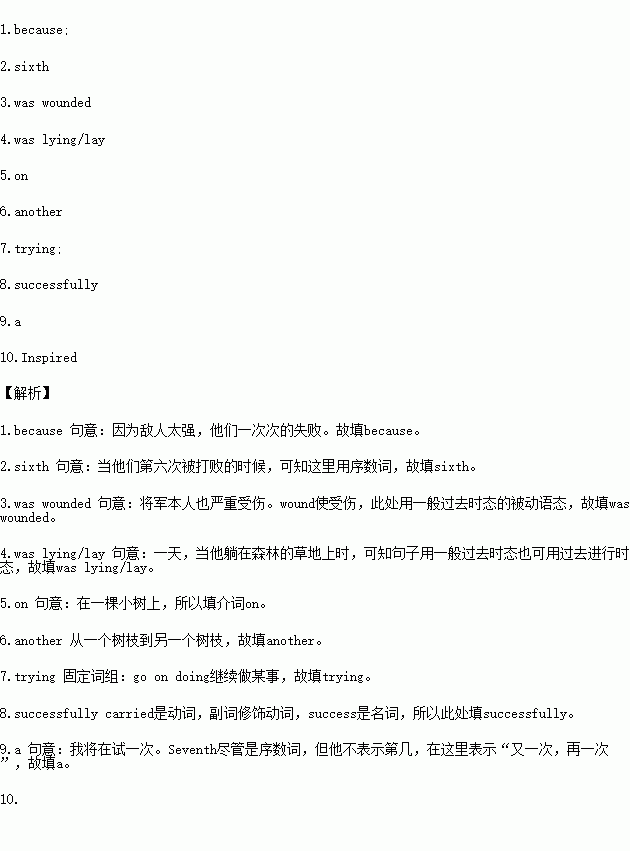题目内容
语法填空
A brave general led his soldiers to fight against their enemy bravely.But 1. the enemy were too strong, they failed again and again. When they were beaten the 2. (six) time, most of his soldiers died in the battle. The general himself too 3. (wound) seriously. He was driven into a small farmhouse in a forest. He was sad these days. He thought it was impossible for him to beat the enemy, so he decided to give up.
One day, when he 4. (lie) on the grass in the forest, he saw a spider weaving its web 5. a small tree. The spider worked slowly and carefully. Six times it tried to throw its thread from one branch to 6. and six times it failed. He thought the spider would give up. But he was wrong, it went on 7. (try). This time it worked more slowly and more carefully. Finally, it carried the thread 8. (success) to the branches. “How great the spider is! I will try 9. seventh time.” 10. (inspire) by the spirit of the spider, the general gathered his soldiers and trained them carefully. At last they beat the enemy and drove them out of their country.
 天天向上一本好卷系列答案
天天向上一本好卷系列答案 小学生10分钟应用题系列答案
小学生10分钟应用题系列答案

 uck her town, taking the lives of her 2-year-old son, C.J. and her mother-in-law. “It was the most terrible experience of my life,” she says. “That grief will never go away, and it broke my heart to think about what these families were going throug
uck her town, taking the lives of her 2-year-old son, C.J. and her mother-in-law. “It was the most terrible experience of my life,” she says. “That grief will never go away, and it broke my heart to think about what these families were going throug h in Otwell.”
h in Otwell.”